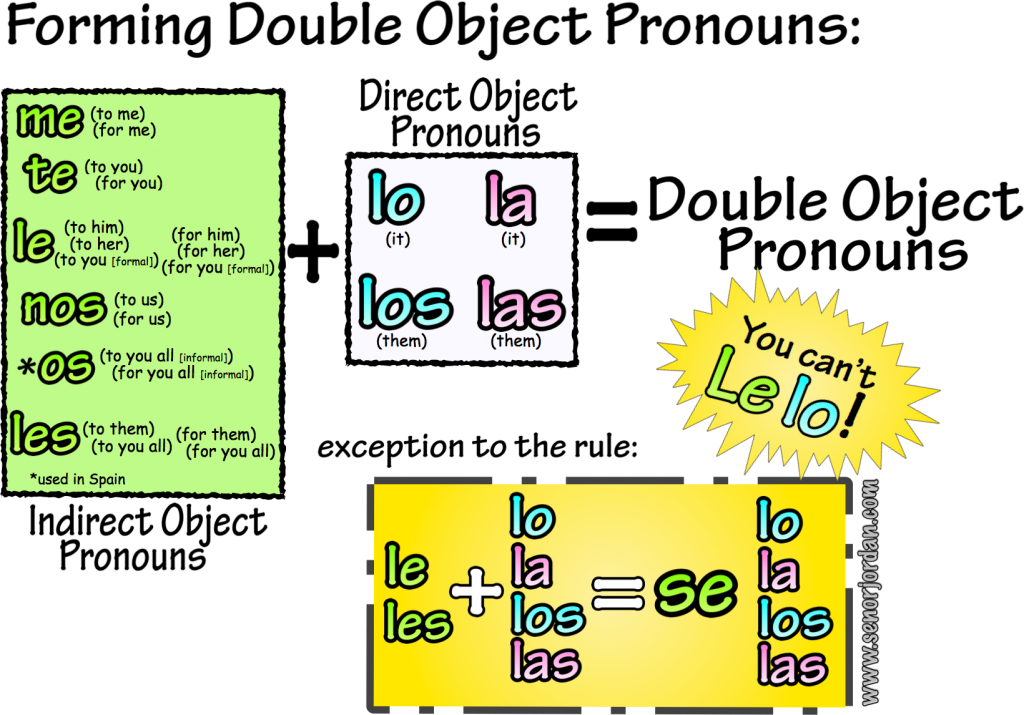In this video lesson we’re going to be practicing Double Object Pronouns some more.
If you aren’t sure what that means, it means we’ll be using both Direct Object Pronouns and Indirect Object Pronouns in the same sentences.
Leave any questions or comments below!
Click here to download worksheet mentioned in video.


2 Responses
Ud. dijo hay un “worksheet” debajo este video. No lo veo. Donde esta?
In Practice 4, # 11, on using double object pronouns, your sentence is “Me puedes traer agua.” The answer is “Me las puedes traer,” because agua is feminine. But down below in the listing of nouns, you have “el agua,” so when I referred to your list, I got the answer wrong (I thought it was “Me lo puedes traer.”) Is it correct to say “el agua” and not “la agua”?
Thank you for all your lessons. You have the best website for learning Spanish. Nobody teaches it better than you!